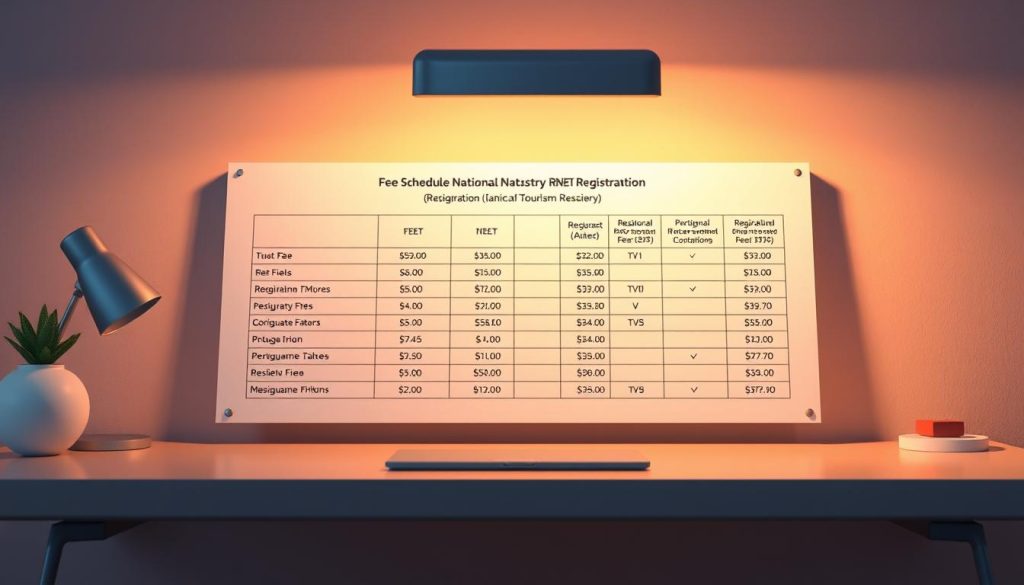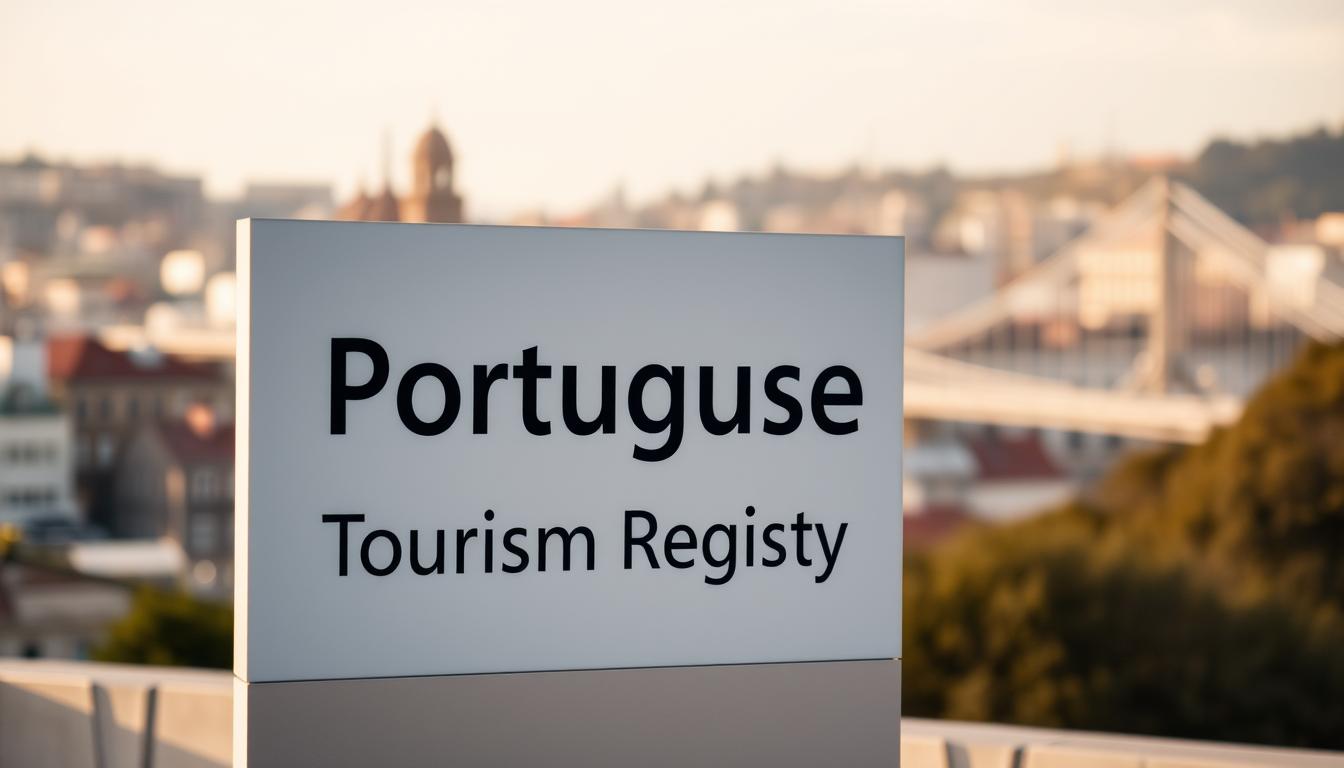If you want to start a tourism business in Portugal, you must register with the Portuguese National Tourism Registry (RNET). This is a key step that ensures your business follows local rules and meets industry standards. It helps make the tourism sector more credible.
We will explore the RNET registration process and its advantages for your tourism business in Portugal. This will help you understand why it’s so important.
What is the Portuguese National Tourism Registry?
The Portuguese National Tourism Registry, or RNET, is key for managing tourism info in Portugal. It has four main parts: the National Tourism Enterprises Register (RNET), the National Travel Agencies Register (RNAVT), the National Tourism Recreation Agents Register (RNAAT), and the National Local Lodging Register (RNAL). Each part works alone to keep tourism in check across the country.
Overview of RNET and Its Importance
RNET is vital for tourism growth in Portugal. It brings together important info, making businesses and tourists trust each other more. This trust is essential for keeping high standards and following rules in the tourism world.
Purpose of the Registry
The registry does more than just keep records. It’s the backbone of tourism businesses. RNET makes sure businesses are accountable and follow rules, creating a safe place for everyone.
How RNET Supports Tourism Businesses
RNET helps tourism businesses a lot. It gives them useful data and insights for marketing. With location-based info, they can reach the right people, making their promotions better. RNET is a big help for the local economy and tourism in Portugal.
Why Register with RNET?
Registering with the Portuguese National Tourism Registry (RNET) brings many benefits to our tourism businesses. It boosts our visibility in the busy tourism world. This means we can draw in more customers looking for trustworthy services and experiences.
Being compliant with local laws also makes our operations legitimate. It shields us from legal issues and keeps our business running smoothly. This focus on following the law helps us avoid risks and keeps our reputation strong.
Another key benefit is the boost to our business credibility. Official registration makes customers more likely to trust us. Knowing we operate legally, we can build stronger relationships with our clients. This leads to more bookings and loyal customers.

Who Needs to Register with RNET?
It’s important to know who must register with RNET in the Portuguese tourism sector. Many tourism businesses need to register. This is to follow the law and get support and resources.
Types of Businesses Required to Register
In Portugal’s lively tourism scene, some businesses must get RNET registration. These include:
- Hotels and hostels
- Guesthouses and bed-and-breakfasts
- Holiday rentals and vacation homes
- Travel agencies and tour operators
These businesses are key to boosting tourism and improving visitor experiences. Registering shows they meet high standards.
Exemptions and Special Cases
Not all tourism businesses need to register. Some might not have to, based on certain rules. For example, small hosts of short-term rentals might not need to register if they meet specific criteria.
It’s essential to check if your business qualifies for an exemption. This way, you can see if you need to register with RNET.
Steps to Register with RNET
To start a business in Portugal’s tourism sector, you must register with RNET. This process needs careful planning and all documents ready. It’s important to prepare well before applying.
Preparing Your Documentation
First, collect all needed documents. You’ll need ID, proof of address, and any tourism permits. Make sure these are correct and up-to-date to avoid delays.
Filling Out the Application Form
With your documents ready, fill out the application form. Be precise and accurate to avoid mistakes. Check your documents as you fill it out to keep everything consistent.
Submitting Your Registration
After filling the form, submit your registration. You can do this online or in person at local offices. Keep a record of your submission for future use.

Key Documentation Required for Registration
To register with RNET, we need to collect several important documents. Preparing these documents well can make our registration process easier. It helps us become a recognised business in Portugal’s tourism sector.
Business Identification Documents
Business identification documents are key for RNET registration. This includes registration certificates, commercial licences, and any other permits. These show we follow local laws.
Proof of Address
We must also provide proof of address. This can be utility bills, lease agreements, or bank statements. They prove where our business is located and meet residency rules.
Tax Identification Number (NIF)
The Tax Identification Number (NIF) is also needed for RNET registration. It shows we meet our tax duties and helps us stay transparent with tax authorities. Getting the NIF makes sure we’re legally right and handle our money well.
Fees Associated with RNET Registration
Knowing the costs of RNET registration is key for starting a tourism business in Portugal. The fees change based on the business type and what’s needed for registration. Knowing these costs helps with planning and makes the registration smoother.
Overview of Registration Costs
The fees for RNET registration depend on the tourism business type. For instance, hotels and tour operators pay different amounts. Here’s a look at typical fees:
| Business Type | Registration Fee |
|---|---|
| Hotels | €150 |
| Hostels | €100 |
| Holiday Rentals | €75 |
| Travel Agencies | €200 |
Payment Options
We have several ways to pay for registration. You can pay online or in person at local offices. This makes it easy to find a payment method that works for us.
Potential Refunds or Waivers
In some cases, businesses might get waivers or refunds. It’s worth checking if we qualify for any financial help. Knowing the rules can help lower the cost of RNET registration.

The Registration Process Timeline
Knowing the RNET registration timeline is key for planning. Many things can affect how long it takes. These include the local authority’s workload and how complex our application is. Once we apply, we get a confirmation of receipt, starting the review.
Typical Processing Times
Processing times vary a lot. They depend on different factors. Here are some common timeframes to expect:
| Application Status | Estimated Timeframe |
|---|---|
| Initial Review | 1–2 weeks |
| Further Information Required | 2–4 weeks |
| Final Approval | 2–6 weeks |
What to Expect After Submission
After applying, we get a follow-up process. First, we get a confirmation notice. Then, we wait for a detailed review from the authorities. Being prepared is important, as we might need to provide more info or clarification.
Follow-Up Steps
Following up on our application is helpful. Here’s what we can do:
- Contact the local authority for updates.
- Email or call if we haven’t heard back in time.
- Keep copies of all communications for future use.
Maintaining Your RNET Registration
After registering with the Portuguese National Tourism Registry (RNET), keeping our registration up to date is key. We need to update and renew regularly. This ensures our details are correct and we know when our registration is valid.
Periodic Updates and Renewals
We must tell the Portuguese Authorities about any changes within 10 days. This keeps our registration smooth. Knowing these rules helps us run our business smoothly.
Keeping Your Information Current
Keeping our business info up to date builds trust with clients and authorities. Our name, address, and Tax Number (NIF) must always be correct. If we don’t, it could cause problems for our business.
Understanding Registration Validity
Knowing when our registration expires is very important. It helps us plan and stay compliant. Staying on top of this ensures we can operate without issues. For more help, check out the Portuguese registration process FAQs.

Common Challenges in the Registration Process
Registering with the Portuguese National Tourism Registry (RNET) can be tough. We face many bureaucratic hurdles. Knowing these challenges helps us prepare and make the process smoother.
Navigating Bureaucratic Hurdles
Starting the RNET registration, we meet many bureaucratic obstacles. These include complex laws, specific documents, and different views from local authorities. It’s key to stay organised and check details carefully. Any mistake can cause delays and frustration.
Addressing Application Rejections
It’s common to face application rejections during RNET registration. Rejections can happen for many reasons like missing documents or not meeting criteria. We should take these notices seriously. They tell us what we did wrong. Quick responses with the right corrections can boost our chances of success.
Solutions and Support Resources
Getting help can make a big difference in RNET registration. There are many resources to help us. Local tourist boards, professional services, and government websites offer great advice and support. Using these resources can help us understand and solve problems before they start.
| Challenge | Description | Solution |
|---|---|---|
| Bureaucratic Hurdles | Complex regulations and documentation requirements. | Engage with local tourist boards for clarity. |
| Application Rejections | Rejections due to incomplete forms or criteria non-compliance. | Request feedback and submit corrected applications promptly. |
| Lack of Information | Difficulty in understanding the registration process. | Consult professionals who specialise in tourism registrations. |
Resources for Assistance with RNET Registration
There are many resources to help us with RNET registration. Getting the right information and support is key to a smooth registration. Official government sites, local tourist boards, and consulting services are all there to guide us.
Official Government Websites
Official government websites are a goldmine of information. They keep us updated on RNET registration rules and changes. You can find forms, guidelines, and contacts to help with the process.
Local Tourist Boards and Associations
Local tourist boards and associations offer local insights. They know what’s needed for RNET registration in our area. They can help us tackle local challenges and find opportunities in tourism.
Professional Consulting Services
Professional consulting services make registration easier. They help us follow all RNET registration rules. Their expertise saves time and reduces mistakes, giving us peace of mind.
Real-Life Examples of RNET Registration Success
Looking at real-life examples of RNET registration success can show how it helps businesses in tourism. Many tourism businesses have seen good results from registering. This has led to more customer trust and better work flow. Here are some stories and feedback from those who have gone through the process.
Case Studies of Successful Tourism Businesses
Many tourism businesses have found RNET registration helpful. For example, a small hotel in Lisbon saw more bookings after registering. They said it made them more credible. A tour operator in Porto also benefited, getting more clients through international partnerships.
Testimonials from Registered Businesses
- “Registering with RNET made a big difference for our guesthouse. Customers feel safer knowing we meet official standards,” said a guesthouse owner in Faro.
- A tour guide in Madeira said, “The RNET registration process was easy. The benefits to our business have been clear. We’ve seen a big jump in customer trust.”
Conclusion: Getting Started with Your Registration Journey
As we wrap up our guide on RNET registration, we’re urged to take action. This will make our application smooth. A key tip is to prepare our documents well to avoid delays.
By doing this, we can join Portugal’s booming tourism sector. This opens doors to success in a changing market. It’s vital to stay updated on new rules and changes to boost our reputation.
Now, let’s start by collecting all needed documents and begin the registration. For more on our legal duties, check out this helpful guide. With hard work and preparation, we can achieve our goals and help grow tourism in Portugal.







